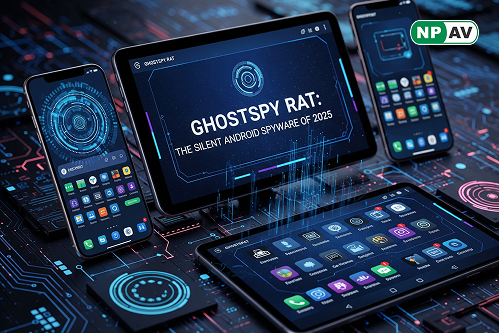Npav Lab
-
Read moreTwo employees of Paytm Payments Bank have been arrested for allegedly unfreezing accounts linked to cyber fraud, releasing nearly ₹30 lakh without legal authorization. Learn about the investigation and implications for internal oversight.
-
Read moreDiscover how the Dark Partners cybercrime group targets cryptocurrency users through fake websites impersonating AI tools and VPN services. Learn about their sophisticated malware and evasion techniques.
-
Read moreLearn about the rising threat of contactless card skimming in European cities, where scammers silently steal small amounts from unsuspecting tourists. Discover how to protect yourself from this insidious scam.
-
Read moreChhattisgarh has reported 1,301 cybercrime cases in the last 18 months, leading to losses exceeding ₹107 crore. Discover the recovery efforts and strategic responses by the government to combat this growing threat.
-
Read moreIndia faced cybercrime losses of ₹7,000 crore between January and May 2025, primarily from scams linked to Chinese syndicates in Southeast Asia. Discover the impact and urgent need for enhanced cybersecurity measures.
-
Read moreCloudflare's Q2 2025 DDoS Threat Report reveals the largest recorded DDoS attack, peaking at 7.3 Tbps and 4.8 billion packets per second. Discover the evolving threat landscape and essential mitigation strategies.
-
Read moreA surge of cyberattacks has targeted major organizations, including Hawaiian Airlines and Qantas, exposing vulnerabilities in consumer data security. Experts warn of increased risks and advise consumers on protective measures.
-
Read moreDiscover GhostSpy, a sophisticated Android Remote Access Trojan (RAT) that silently infiltrates devices, steals sensitive data, and evades detection. Learn how it operates and the real-world impact on user privacy and security.
-
Read moreA Bengaluru man lost ₹44 lakh after falling for a romance scam involving a woman named "Archana" on Instagram, leading him to a fake Bitcoin investment platform. Learn about the growing trend of crypto scams exploiting online relationships.
-
Read moreDiscover the PerfektBlue security threat exposing 350 million vehicles, including Mercedes, Skoda, and Volkswagen, to remote code execution (RCE) attacks via Bluetooth vulnerabilities. Learn how these flaws can be exploited and what it means for vehicle security.















